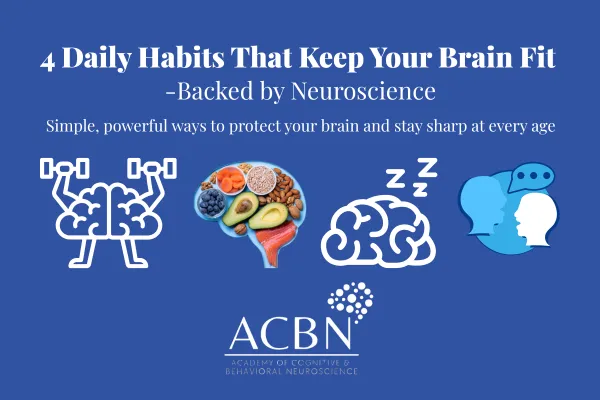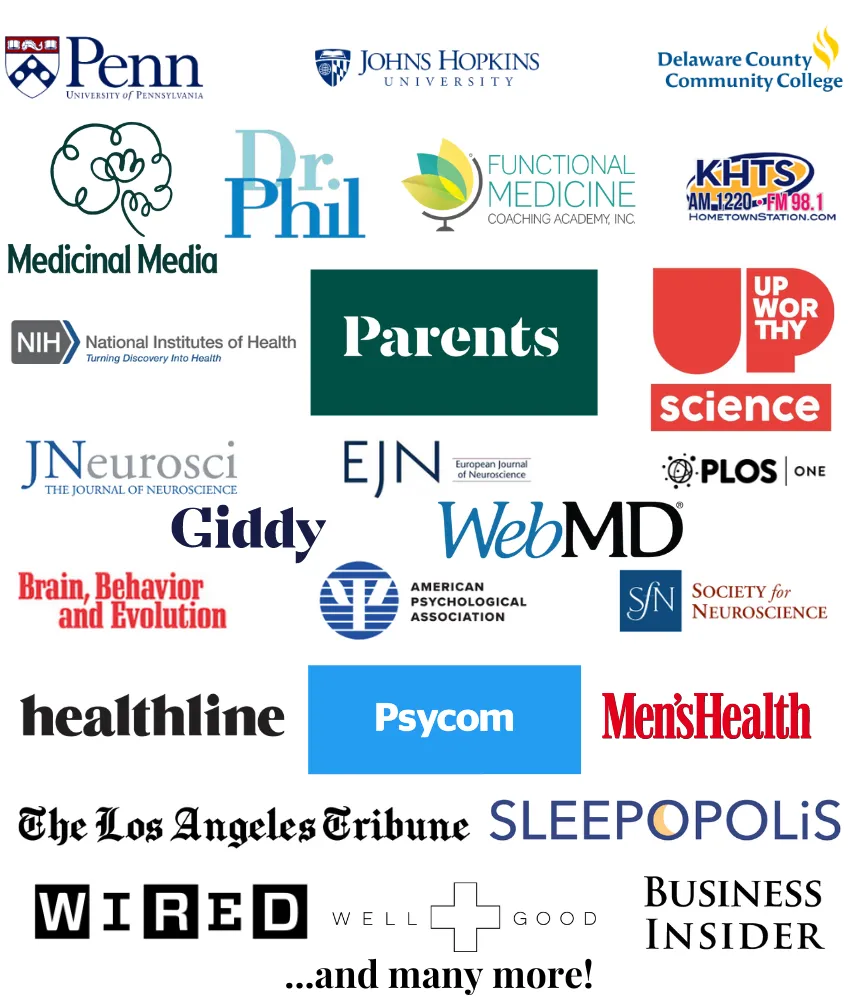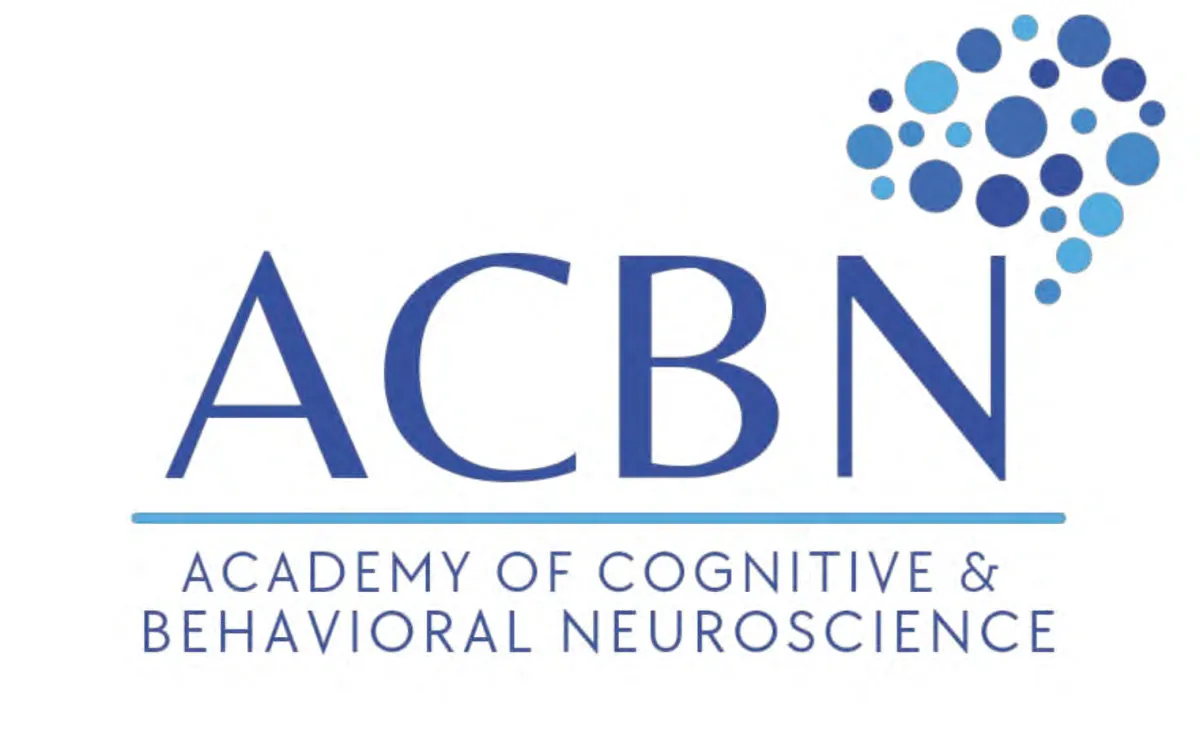
Welcome to Neuroscience Nuggets, your treasure trove of brain science knowledge designed to unlock the secrets of personal and professional growth! If you've ever been curious about the power of the brain and how it influences our thoughts, emotions, and behaviors, you're in the right place!!
Neuroscience, the captivating study of the brain and nervous system, offers a goldmine of insights to enrich our lives and those of our clients. At Neuroscience Nuggets, we're dedicated to making brain science approachable, exciting, and applicable in all aspects of your journey. Whether you're seeking to nurture your own well-being or enhance your professional practices, our nuggets of wisdom will equip you with practical tips, strategies, and evidence-based approaches to empower yourself and your clients.
Join us as we embark on an exhilarating adventure into the realm of neuroplasticity—the brain's remarkable ability to change and adapt. Together, we'll explore how harnessing neuroscience can lead to personal fulfillment, enrich your relationships, and supercharge your professional impact. So, grab your pickaxe and get ready to dig deep into the world of neuroscience nuggets. Let's unlock the untapped potential of the brain and unearth the pathways to personal and professional growth together. 🌱🌟

4 Daily Habits That Keep Your Brain Fit—Backed by Neuroscience
Simple, powerful ways to protect your brain and stay sharp at every age.
Your Brain Is Built on Your Daily Habits
We’ve all heard the phrase “use it or lose it,” but when it comes to the brain, nourish it or lose it might be more accurate.
As an educator and consultant in cognitive and behavioral neuroscience, I often remind people: brain health isn’t something we wait to think about until we’re older—it’s something we actively create, one daily habit at a time. The brain is dynamic, adaptable, and surprisingly responsive to small changes in how we eat, move, sleep, and connect with others.
If you want to stay mentally sharp, boost mood and focus, and reduce your risk of cognitive decline, start with these four foundational habits.
🥗 1. Eat a Brain-Loving Diet
Food is more than fuel—it’s raw material for your brain.
The MIND diet (a blend of the Mediterranean and DASH diets) is specifically designed to support brain health and has been shown to reduce the risk of Alzheimer’s by up to 53% when followed closely. It focuses on whole foods like leafy greens, berries, nuts, olive oil, fish, and whole grains while limiting processed foods, red meat, and added sugar.
From a neuroscience standpoint, this diet supports cognitive health in several ways:
Omega-3 fatty acids (found in fish and flaxseeds) strengthen brain cell membranes and enhance communication between neurons.
Polyphenols and antioxidants (in berries and dark leafy greens) help reduce inflammation and oxidative stress, both of which can impair memory and learning.
Fiber-rich foods feed your gut microbiome, which communicates directly with the brain and influences mood, cognition, and even decision-making.
Brain Tip: Add a serving of berries to your breakfast and sneak in leafy greens with lunch or dinner. These small shifts nourish your neurons daily.
🏃♀️ 2. Move Your Body, Change Your Brain
Exercise doesn’t just strengthen muscles—it rewires your brain.
Regular physical activity increases blood flow to the brain, delivering oxygen and nutrients that neurons need to thrive. It also boosts the production of BDNF (Brain-Derived Neurotrophic Factor)—often called “Miracle-Gro” for the brain—supporting neuroplasticity, which helps us learn, adapt, and recover from mental fatigue.
Aerobic exercise is especially powerful for brain health. Activities like brisk walking, swimming, dancing, or cycling have been linked to better memory, sharper focus, and a reduced risk of dementia. Strength training and yoga also play a role, supporting balance, coordination, and stress regulation.
Brain Tip: Aim for 30 minutes of moderate aerobic exercise, three to five times a week. Choose movement you enjoy—that’s the key to making it sustainable.
😴 3. Prioritize Sleep—It’s Brain Maintenance
Sleep is your brain’s nightly tune-up. While you sleep, your brain clears out waste products, balances neurotransmitters, and consolidates memories. Deep sleep, in particular, is when your brain “cleans house,” flushing out harmful proteins like beta-amyloid that are linked to Alzheimer’s.
Chronic sleep deprivation, on the other hand, can shrink the hippocampus (your memory center), dull focus, and heighten emotional reactivity.
To optimize sleep for brain health:
Keep your bedroom cool, dark, and tech-free.
Follow a consistent bedtime and wake-up time.
Wind down with a calming routine—stretching, journaling, or reading can help.
Brain Tip: If your mind spins at night, do a “brain dump”—write down your worries, ideas, or to-dos before bed to reduce mental clutter.
💬 4. Stay Social—Your Brain Thrives on Connection
Social interaction is one of the most overlooked brain boosters. Meaningful connection activates multiple areas of the brain, including those responsible for language, memory, emotion regulation, and attention.
Staying socially engaged has been linked to better mental agility, reduced stress, and even a longer lifespan. It protects against loneliness, which research now shows is as harmful to health as smoking 15 cigarettes a day.
The most beneficial social interactions are face-to-face, emotionally fulfilling, and consistent. Whether it’s chatting with a friend over coffee, volunteering, joining a book club, or FaceTiming with family—connection matters.
Brain Tip: Mix generations and perspectives—interacting with people of different ages and backgrounds keeps conversations stimulating and challenges your thinking. Or join a group where you learn something new together....It’s a double win for social and cognitive enrichment.
🧠 Bonus Brain-Boosters to Consider
If you're already practicing the four big habits, here are a few extras to give your brain even more love:
Learn new skills: Novelty stimulates new neural connections.
Meditate or practice mindfulness: Just 5–10 minutes a day reduces stress hormones and improves focus.
Hydrate regularly: The brain is 75% water—even mild dehydration can slow cognitive processing.
Protect your hearing: Hearing loss increases cognitive load and has been linked to dementia risk.
Final Thoughts: Build Your Brain One Day at a Time
Mental fitness isn’t a luxury—it’s a lifestyle. The beauty of the brain is that it responds to small, consistent efforts. So whether you’re taking a walk, reaching for berries, turning off your phone before bed, or laughing with a friend, know that you’re doing something powerful: protecting your brain for the long haul.
Start with one habit. Build from there. Your future self—and your present brain—will thank you.

Meet Your Blogger
Dr. Hayley Nelson earned her PhD in Psychological and Brain Sciences from The Johns Hopkins University, is a tenured professor of Psychology in the Philadelphia area, and is an international speaker. She has over 20 years of teaching experience with students from diverse backgrounds, has several peer-reviewed research publications and previous research and faculty appointments with The National Institutes of Health, The Johns Hopkins University, and The University of Pennsylvania.
If the idea of learning about the brain and neuroscience feels overwhelming and intimidating, Dr. Hayley is the perfect neuroscientist for you. She's a busy mom of 2 with a great sense of humor, and she prioritizes bringing some fun and compassion to a field that can feel a little "hardcore". You can expect lots of real world experiences and examples and an open, caring learning environment where there are no stupid questions. Listening to one of Dr. Hayley's discussions feels more like a conversation with a family member (a really smart family member).
By creating the Academy of Cognitive and Behavioral Neuroscience, Dr. Hayley Nelson combined her knowledge of the human mind and brain health with her passion for education, teaching, and consulting to truly make neuroscience approachable. Her students learn easy-to-swallow knowledge of how the brain works in real-life situations and are armed with an education in a subject they can use literally every single day. Not only that, they gain the power to serve their clients better and create an environment for their communities to thrive.
Dr. Hayley's Featured Contributions, Publications, and
Faculty & Research Appointments

With a Certification in Cognitive & Behavioral Neuroscience, you will gain the confidence to speak with authority about HOW & WHY what you teach your clients actually works.
Neuroscience feels intimidating, and perhaps you've always thought that you're not positioned to be an authority on the science behind what's happening in your client's brain. Dr. Hayley Nelson founded the Academy of Cognitive & Behavioral Neuroscience, and she designed this Certificate Program with one goal in mind:
To make neuroscience approachable for professionals who want to distinguish themselves from others in their field with a unique and comprehensive understanding of the latest research and innovative techniques in neuroscience, and earn a highly respected certification in cognitive and behavioral neuroscience that sets them apart as a true expert in their field.
After completion of the certificate, students will uncover a newfound sense of confidence and neuroscience knowledge, will stand out in their industry by offering something unique to their clients, gain credibility, better serve their existing clients, and be positioned to take on more clients best suited for their programs.
Have questions about the Certification Programs from Dr. Hayley and
The Academy of Cognitive and Behavioral Neuroscience (ACBN)?
Want to book a 1-on-1 Office Hour consultation with Dr. Hayley?
Want to See What it's Like to Learn from Dr. Hayley?
Want to Stay in the Loop with Dr. Hayley and ACBN?
Connect directly with Dr. Hayley!
Click the blue chat bubble in the right-hand corner of the screen to get in touch with me, or connect with me on social media.





